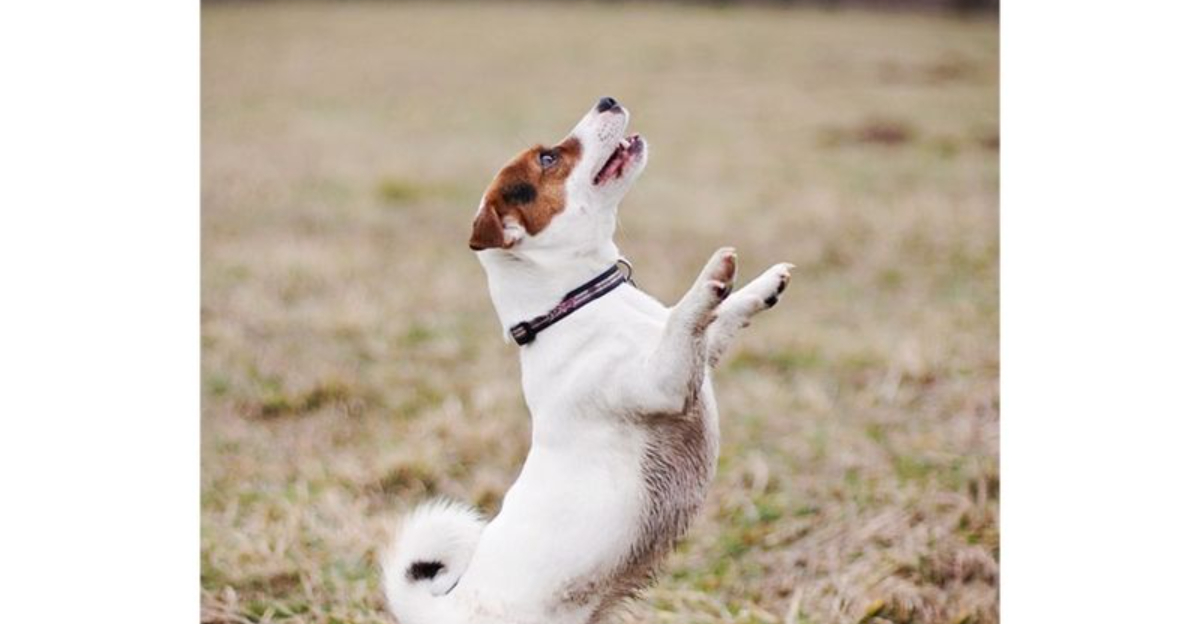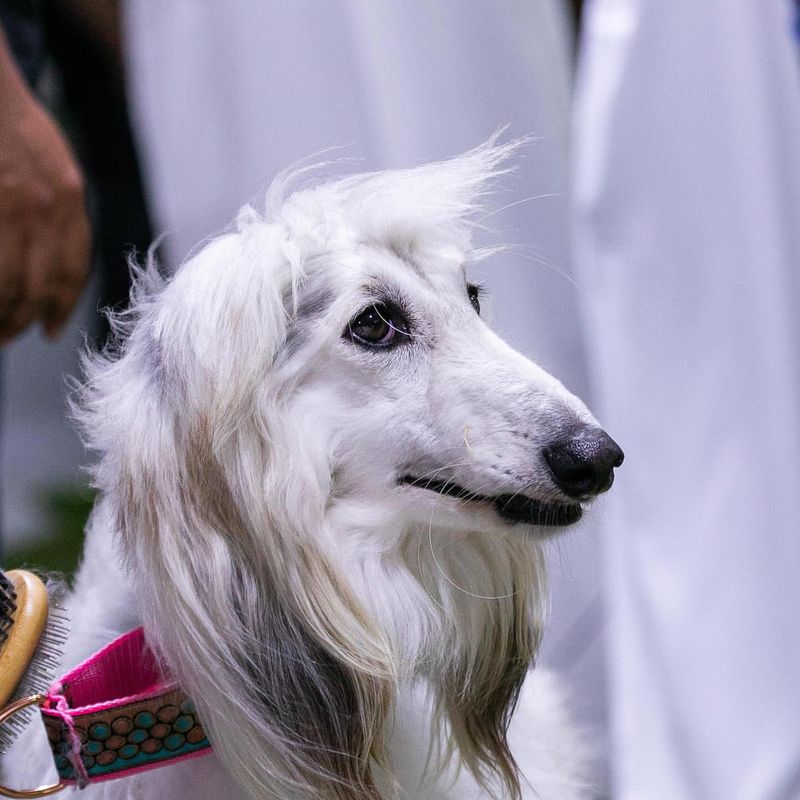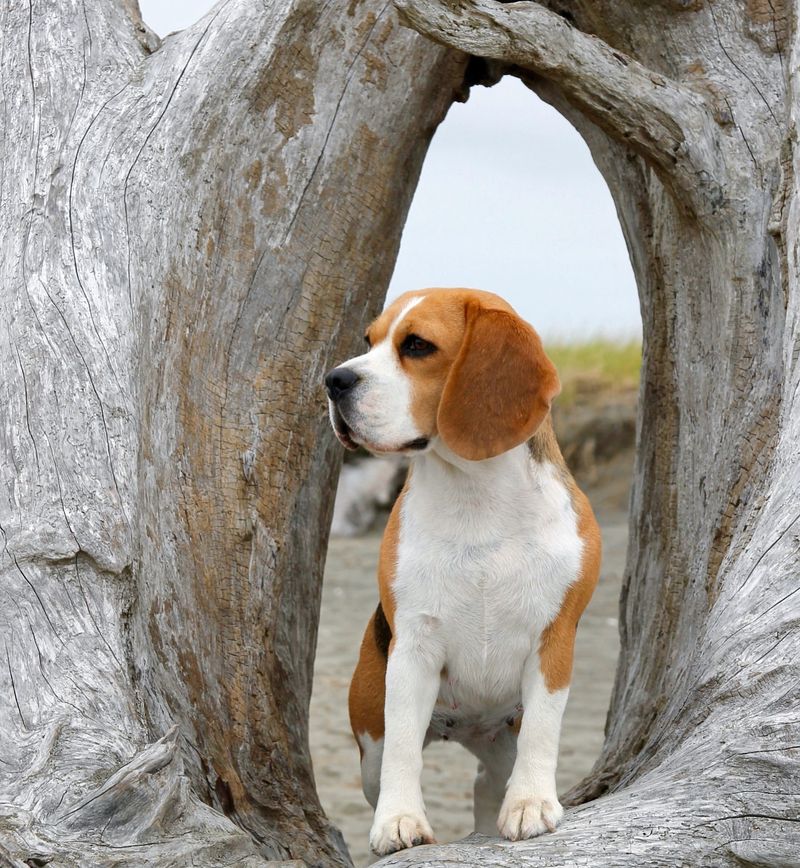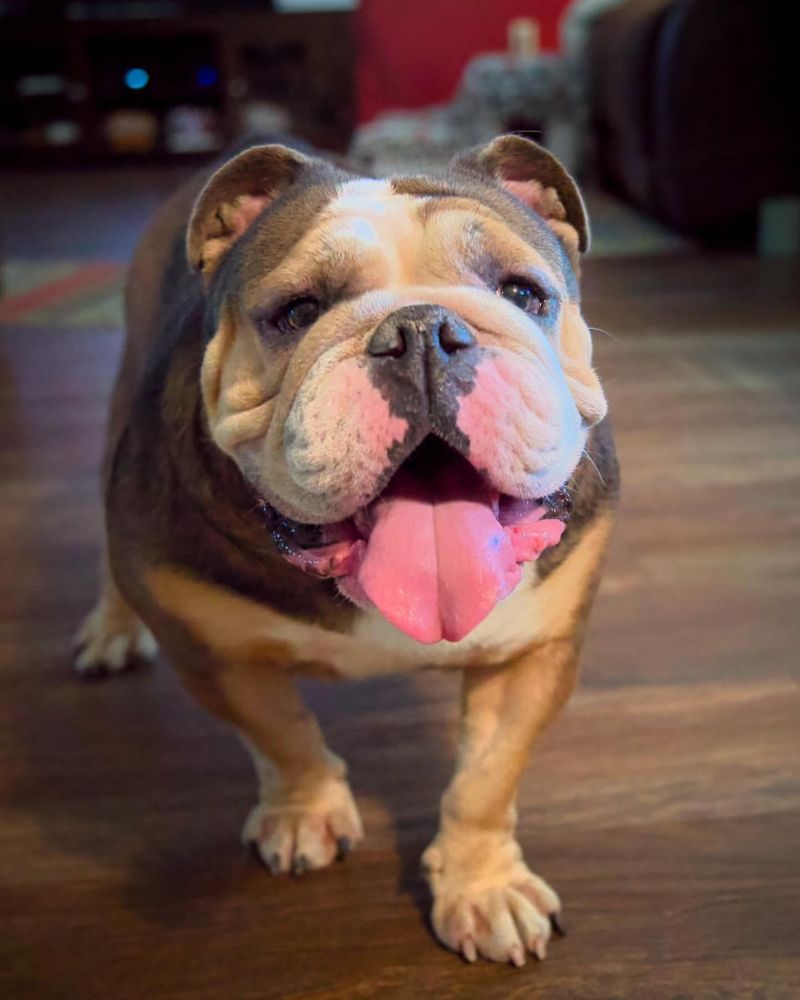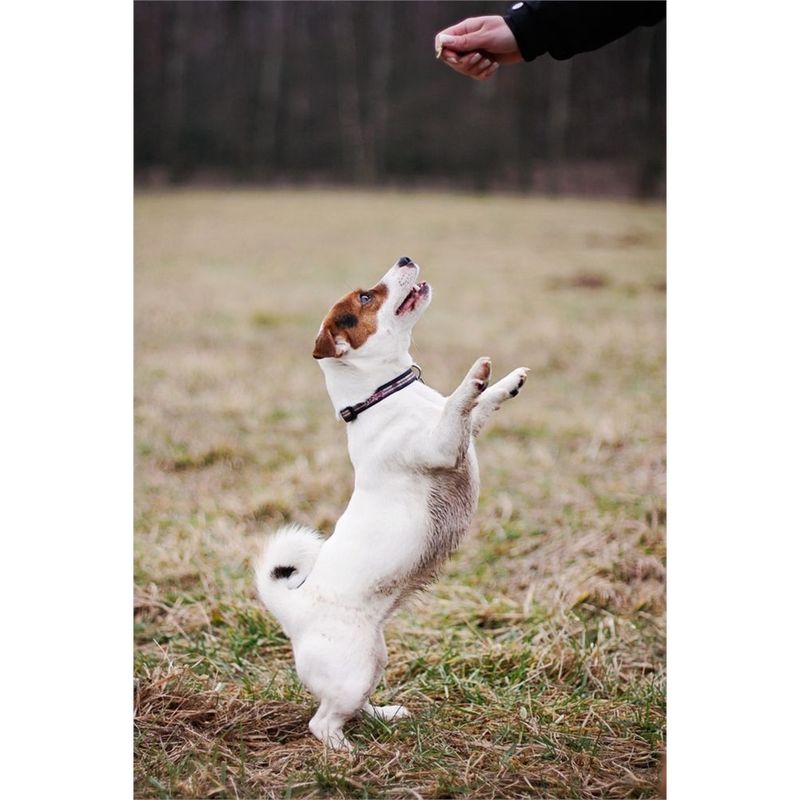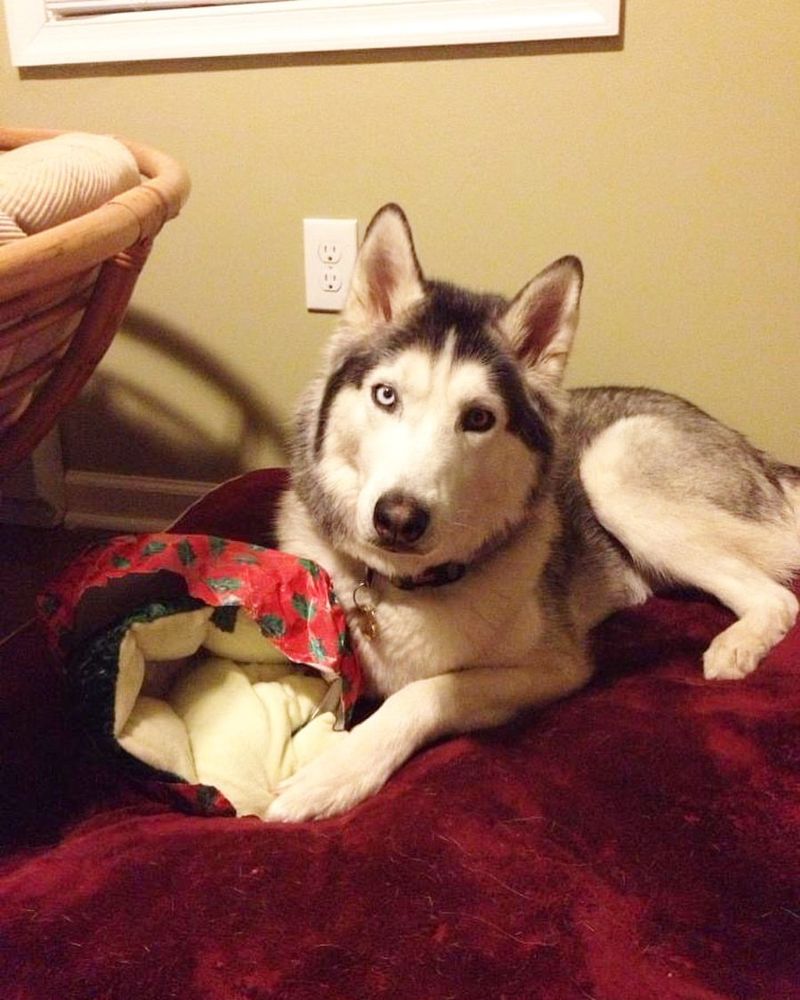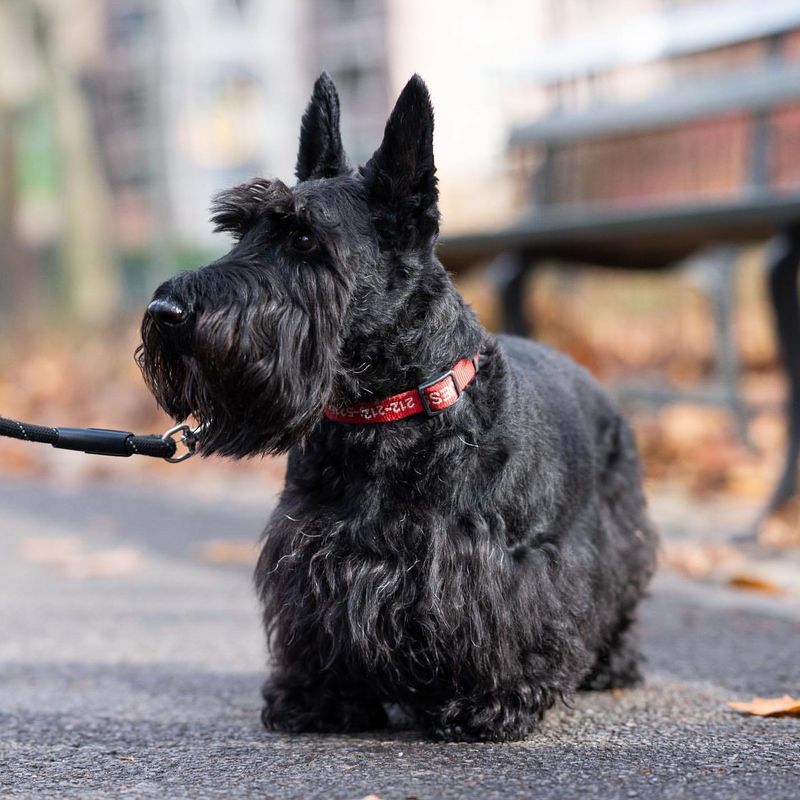Training a dog can be a rewarding experience, but some breeds are notorious for their stubborn nature, making the process more challenging. These dogs often require extra patience, consistency, and creative training techniques. If you’re considering bringing one of these breeds into your home, be prepared for a training journey that will test your skills and commitment.
Afghan Hound
The Afghan Hound is known for its regal appearance and independent spirit, which can make training a challenge. This breed tends to think for itself, often ignoring commands if it doesn’t see the benefit. Their aloof nature can make them seem distant, but with persistence and patience, they can learn to respond well to training. Afghan Hounds need an experienced owner who can employ consistent rules and positive reinforcement. Despite their stubbornness, their intelligence allows them to excel in agility and obedience training when motivated by rewards.
Basset Hound
Basset Hounds are lovable and gentle, but their stubborn streak can make training difficult. Known for their strong sense of smell, they can easily become distracted during training sessions. With their laid-back nature, they often prefer lounging to listening. Consistent training with positive reinforcement helps, but patience is key. Breaking tasks into small steps and using treats can motivate them. Basset Hounds are great family pets, but understanding their independent personality is essential for successful training. Embrace their quirks and work with them rather than against them.
Beagle
The Beagle’s nose is its guide, leading to curious adventures that can disrupt training. Beagles are energetic and playful, often letting their sense of smell take precedence over listening to commands. This breed requires patience and consistency in training, focusing on harnessing their natural scent-tracking abilities. Positive reinforcement with treats and games can hold their attention longer. Beagles love companionship, so integrating socialization into training can enhance their responsiveness. Their joyful nature means training should be fun and engaging to keep them interested and motivated.
Bulldog
Bulldogs are known for their charming, yet stubborn personalities. Training a Bulldog requires persistence and creativity, as they can be set in their ways. Their laid-back attitude can make them seem lazy, but with the right motivation, they can learn commands effectively. Bulldogs respond well to short, fun training sessions with plenty of rewards. Building a strong bond through positive encouragement is crucial. Despite their stubborn nature, Bulldogs are loving companions who thrive on attention and affection, making them worth the training effort.
Chow Chow
Chow Chows are known for their lion-like appearance and aloof demeanor, traits that can present challenges in training. They tend to be independent thinkers, often assessing whether commands are worth following. Early socialization is crucial for this breed to prevent stubborn behaviors. A firm, yet gentle approach with positive reinforcement can yield the best results. Chow Chows require a trainer who can assert authority without harshness. Their loyalty is unmatched, and with proper training, they can be devoted companions. Patience is key in unlocking their potential.
Dachshund
Dachshunds have a reputation for being clever yet willful, which can make training a challenge. Their hunting instincts drive them to follow scents, often ignoring commands in favor of exploration. Training requires a balance of firmness and understanding, using their natural curiosity to engage them. Consistent rules and positive reinforcement with treats can motivate them. Dachshunds enjoy tasks that challenge their intelligence, such as puzzle games. With persistence and creativity, they can learn a variety of commands, making them delightful and entertaining companions.
Jack Russell Terrier
Jack Russell Terriers are known for their boundless energy and intelligence, traits that can make training both rewarding and challenging. Their strong will and determination mean they require a confident trainer who can provide clear and consistent commands. Engaging their minds and bodies through interactive activities and agility training keeps them focused. Positive reinforcement with toys and treats works well, but training must remain varied to prevent boredom. With the right approach, Jack Russells can excel in obedience and agility, showcasing their remarkable talents.
Pekingese
Pekingese dogs are known for their independent nature and strong-willed personalities. Their regal demeanor often means they decide whether to obey commands based on their mood. Training requires patience and gentle persistence. Positive reinforcement with praise and rewards can encourage them to respond. Keeping training sessions short and engaging helps maintain their interest. Pekingese dogs demand respect and understanding from their owners, requiring a trainer who is both firm and kind. Their loyalty and companionship are worth the effort, making them cherished members of the family.
Shar Pei
The Shar Pei is distinguished by its unique appearance and independent nature, traits that can pose challenges in training. Known for their reserved demeanor, they often require a trainer who is calm and assertive. Early socialization is essential to prevent stubborn behaviors. Training should be consistent and positive, using treats and praise to motivate them. The Shar Pei’s loyalty and protective instincts make them excellent companions, but patience and understanding are vital. With the right approach, they can learn to follow commands and become well-mannered pets.
Shiba Inu
Shiba Inus are known for their bold and spirited nature, often leading to a strong-willed attitude in training. Their independent spirit means they may question commands, requiring a trainer who is both patient and persuasive. Positive reinforcement with treats and interactive games can engage them. Shiba Inus thrive in environments where they can explore and satisfy their curiosity. Consistent training from an early age helps shape their behavior. With dedication and creativity, they can become obedient and loyal companions, though their free-spirited nature always shines through.
Siberian Husky
Siberian Huskies are renowned for their beauty and independent nature, traits that can make training a challenge. Their strong pack instincts and desire for freedom often lead them to resist commands. Training requires consistency, patience, and a deep understanding of their needs. Positive reinforcement with treats and plenty of exercise helps keep them engaged. Huskies thrive in active environments where they can run and play. Building a strong bond through trust and respect is crucial. With the right approach, they can become loyal and well-behaved companions, though their adventurous spirit remains.
Scottish Terrier
Scottish Terriers, often called Scotties, are known for their independent and confident nature. Training these charming dogs requires patience and creativity, as they can be quite self-assured. Scotties respond well to consistent and positive reinforcement, particularly when commands are paired with treats and praise. Early socialization is important to curb stubborn behaviors. Interactive games and activities that challenge their minds can keep them engaged. Though they may test boundaries, their loyalty and affection make the training efforts worthwhile. With perseverance, Scotties can become well-behaved and delightful companions.
